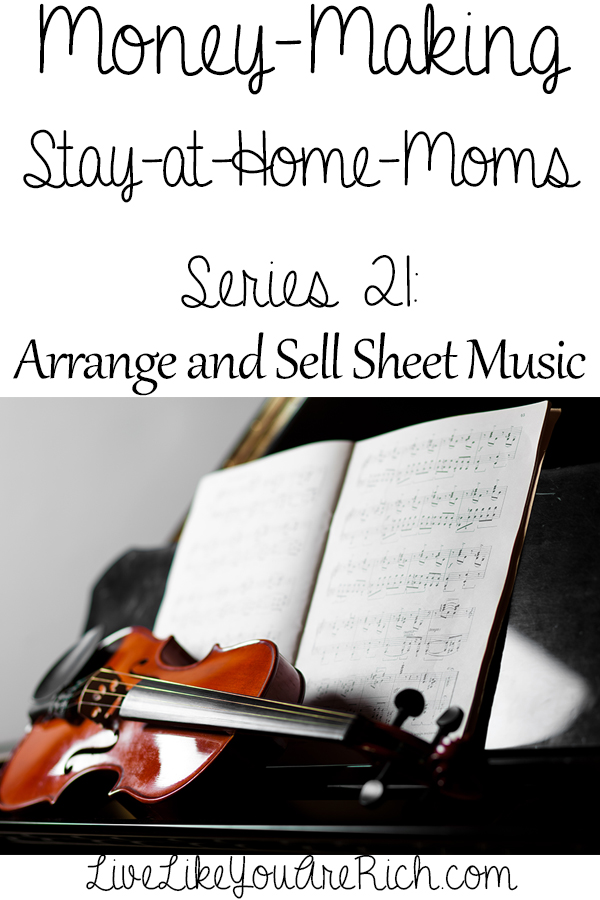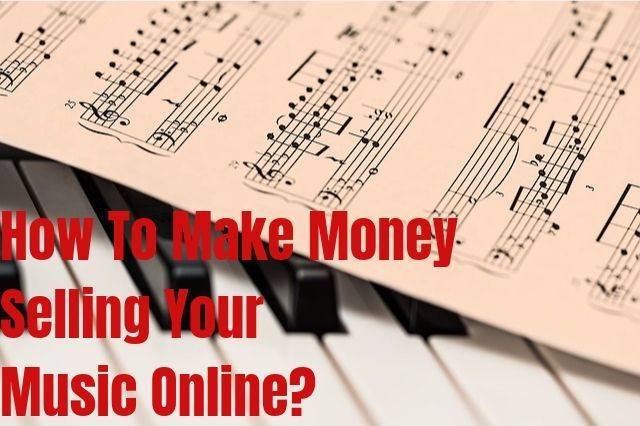
The days of paying to hear recorded music are. If you want to hear something, all it take is a couple clicks or taps. Being successful in music is about taking risks. The digital music distribution boom has made distribution available to all artists—not just those msuci get signed to labels. Getting your music on Spotify, iTunes, Apple Music, Google Play and other platforms makes you available to your fans wherever they listen to music. Plus, playlists are the big players in the digital music era.
… and Getting That Music Played
⓫-8 -(
Sync/License Tracks
)}Spotify or Deezer? Soundcloud or Bandcamp? YouTube or Pandora? Free platforms like YouTube, Bandcamp, and Soundcloud simply require a sign-up, some time to build your personal account, and uploading your audio files. Obviously the advantages to this is price and access to fans. Bandcamp even lets you set a price and sell releases right from your page. But what about those digital music stores and streaming platforms that fans can subscribe to? Surely all one needs to do msic send msiic music directly to them, right? The year is The music industry is several years into the crippling age of illegal downloading among fans online. Physical sales are continuing to plummet, major labels are downsizing their budgets, and music strategists are still scrambling to reconcile for years of refusing to adapt to a total digital shift. Either working directly with Apple major labels or through distribution networks independent labelsfans of all genres had a place to find new music, and the labels had a place to market. But just like in the past, unsigned independent artists felt locked. Without a hoq or a distribution deal, artists could not simply submit their music and sell it on iTunes or Amazon Music. It was the beginning of an empowering time for creators, and it only got better across the digital landscape. Flash forward to over a decade later — iTunes is still a household name, but digital music streaming has become the norm. They pay the artists! Downloaded files were the first format of digital music that fans could purchase. Each store that sells digital downloads has its own pay-out to artists. Sign Up Now. Some streaming platforms substitute subscription revenue for advertising — meaning fans can use the service free of a subscription charge, but they will hear ads intermittently during their listening time.⓬
On Our Blog
Music is not something we do. It is who we are. This is something that is super new and is really ahead of the curve at this point. You may not have heard of Venmo yet, but you will. Much easier than PayPal. So much easier that PayPal saw this and bought Venmo. Create your username to be mybandname and announce from the stage that you accept tips in the form of Venmo. And you can even sell Merch with Venmo. There are 0 transaction fees as long as the customer is paying via their Venmo balance, bank account, debit card, or prepaid card. Let me repeat.

Recording and Writing Music …
This is a guest post from Philip Taylor , editor-in-chief at PT Money , where the focus is on fixing your finances so you can build the life you want. His podcast features interviews with successful part-time entrepreneurs. There are a ton of different ways to make money as a musician. But I can promise that you can make money using at least one of these ways. I present to you ways to make money as a musician. Help add to the list by leaving a comment below. Have you inquired about teaching positions in your local music store? Land an Endorsement Deal — If you have enough influence among other musicians e. When people are looking for music teachers, they will refer potential students to you.
Hello Bar Widget
Copyright — ownership of songs and albums as creative works — is a riotous knot of rules and processes in the music industry , with the players much more numerous and entangled than the ordinary fan might think. For music listeners, a song is a song is a song. But for the music business, every individual song is split into two separate copyrights: composition lyrics, melody and sound recording literally, the audio recording of the song. Sound recording copyrights are owned by recording artists and their record labels. Those parties may have nothing to do with the people who write the lyrics and melody of the song and thus own the composition copyright. For the majority of times when somebody listens to a song, both types of copyright kick in, generating two sets of royalties that are paid to the respective parties. Sometimes labels work with agents that can license bigger catalogs all at once, saving time and trouble but wedging in an extra fee. The specific percentage payouts within these deals depends on the type of service and the negotiating power of all the names involved. Putting music in film and television and commercials, a.
Music Resources
Career Search What do you want to become? Instead of purchasing entire albums, fans began to purchase just one or two tracks for a dollar. This was a heavy blow to an industry which is still sustained overwhelmingly by full album purchases. Eight years after iTunes launched, music listeners in the United States averaged. Streaming is the newest player in the game, with services like Spotify growing in double-digits each year.
These companies are helping to bring billions of dollars in revenue into the industry each year, but they do so in large part by cannibalizing music sales. Why would you purchase a CD when you can get a month of Spotify, with access to millions of tracks including the CD you were about to buy, for the same cost? Including. None of this is good news for the recorded music industry as a. The Internet has made it possible, for the first time in history, for an artist to reach millions of listeners around the world and earn a living through their music, all without ever needing to impress the musical gatekeepers or use a million-dollar marketing budget.
Artists can now be in complete control of their own careers — which includes receiving a significantly larger proportion of the revenue from sales and other income than they would have in the past. Whether you are a major, indie, or completely independent artist, the new music industry has opened up more possibilities for success than have ever existed in the past. You just have to know how to spot. In my last post on Careers in MusicI detailed the two ways that the economics of the Internet work for artists.
The Internet makes it possible to reach millions and millions of fans around the world for an astonishingly low cost. The biggest obstacle is getting their attention in the first place. This is great for the mainstream artists who can invest millions of dollars into getting that attention, and then make a little bit of money from each listener.
But the Internet is also cheap enough and efficient enough for individual artists to control their own destinies. That has never, ever been possible before, even less than a decade ago. Artists have the power. In addition to connecting musicians with fans all over the world for nearly no cost, the Internet has enabled dozens of new possible revenue streams.
InNipsey Hussle made his first attempt at an unconventional album release. The Los Angeles rapper released Crenshaw completely for free online — with a twist.
The bold move inspired a trending Twitter hashtag, Proud2Pay, and prompted Jay Z to buy copies in support. This year, Hussle upped the ante with Mailbox Money. He released the album for free, and printed copies of the album, this time with both exclusive content and his personal contact information. The new price tag? One thousand dollars. This is in an industry rife with stories of artists selling hundreds of thousands of dollars worth of CDs, only to never see a dime of it because of recoupment fees owed to their label.
Hussle has found a way to innovate in an industry stereotypically slow to innovate. There are thousands of examples of artists trying out unconventional methods to earn revenue in the music industry to great success.
But why are fans willing to pay such a hefty price tag for an album they can get for free, minus a couple exclusive tracks? It turns out that fans want to pay to support their favorite artists, and are willing to do so if only they have the opportunity. A Nielsen study found that more than half of the most active music listeners would buy exclusive content from a favorite band recording a new album.
The key is that the content must be valuable and it must be exclusive. It means putting significant effort into delivering something above and beyond the standard track offering. So what can you actually do to take advantage of new opportunities in the music industry? Here are four methods working for artists today:. Live performance has been the preferred way to make a living making music long before the recorded music industry ever existed.
Live music is alive and well, and is how to make money selling msuic to grow even as the rest of the music industry struggles. You simply have to be there to experience it.
And so live performance is unlikely to go anywhere in the future. The demand is high, and the only way to fill the supply is by more and more artists performing.
As long as there is music, there will be performance. One route is through live video performances, either for a small, personal audience through a service like Skype, or for a large audience through platforms like Twitch. On Twitch, you can live-stream your performance, interact with your fans through chat and video, receive payments, and sell merchandise. Some artists are using connections built through the Internet to book small house shows all over the country.
The crowd is small, but intimate, and fans are willing to pay more in order to actually meet and hang out with a favorite artist. This is precisely why vinyl has had such a startling comeback in recent years. Of course, merchandise is another wonderful example of a physical good which has remained strong as a source of income for artists. This is especially true in combination with….
In almost every industry, exclusives are a primary way to increase income. People absolutely love being the very first to have something; they love having content no one else has; and they especially love having personalized items from a favorite artist. Patronage is not new to the music industry. Legendary composers, including Bach, wrote their compositions under a patronage.
But the system has had a modern-day resurgence through sites like Patreon. This system is especially powerful for acapella groups and cover artists. Individuals and groups who perform well on YouTube also tend to find success on Patreon.
The key to success with patronage is through the exclusives mentioned. The record industry is suffering from declining music sales, but things are looking up for artists. Career Articles. Quality Blog Posts. We use cookies to understand how you use our site and to improve your experience. This includes personalizing content and advertising. By continuing to use our site, you accept our use of cookies, revised Privacy Policy and Terms of Use.
Skip to content. Start Here: What are you most interested in? Daily Music Career Info! Follow Us. May 11, By Thomas Rutherford. Now, Check This Out.
Recording and Writing Music …
⓫-5 -(
Mobile Widget
)}
.
⓬
Comments
Post a Comment